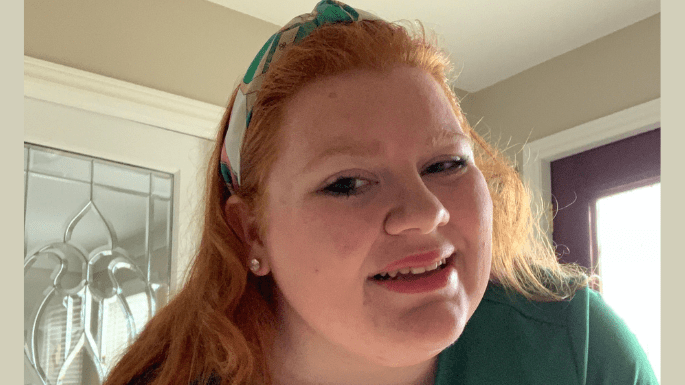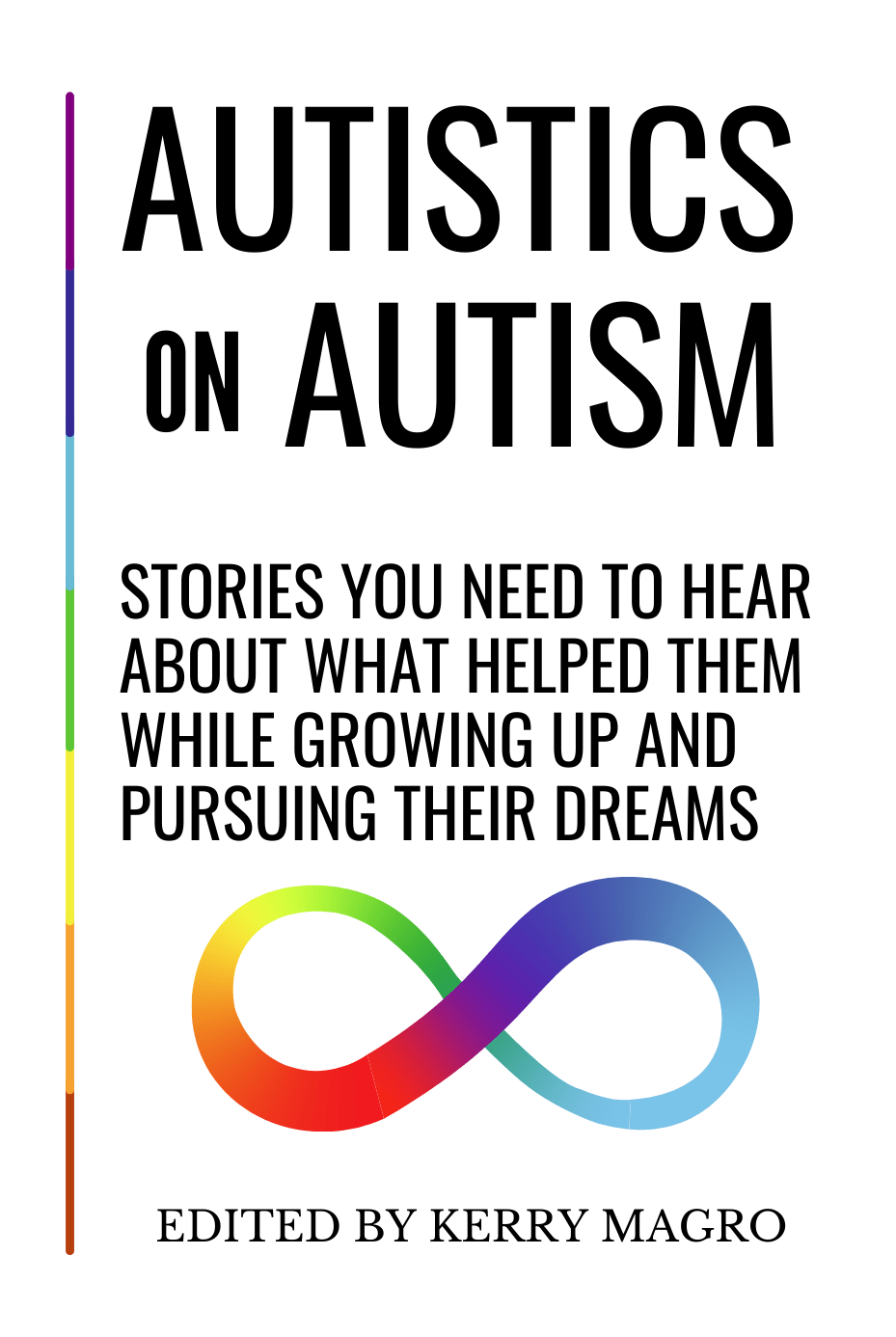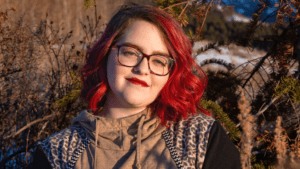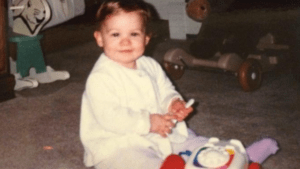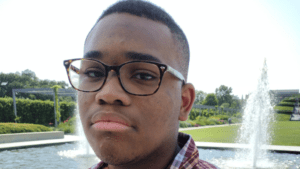This guest post is by Erika Ekblaw, a young woman with autism who attends Ivy Tech Community College. Erika is applying for the Spring 2023 Making a Difference Autism Scholarship via the nonprofit KFM Making a Difference started by me, Kerry Magro. I was nonverbal till 2.5 and diagnosed with autism at 4, and you can read more about my organization here. Autistics on Autism: Stories You Need to Hear About What Helped Them While Growing Up and Pursuing Their Dreams, our nonprofit’s new book, was released on March 29, 2022, on Amazon here for our community to enjoy featuring the stories of 100 autistic adults.
“You can’t win, if you don’t try!” —Robin Sharma
I do not fear failure, but I do fear not trying. Courage is defined as the art of knowing what not to fear. As a result, I try to be courageous in my efforts and stay the course despite hindrances along the way. For me, one of my hindrances is being on the Autism Spectrum. However, I do not quit trying. I believe that I will always be better than those who have never tried.
My struggle is real. As a kid, I was different; I was not “like other children”. I was diagnosed at the age of six with autism spectrum disorder (ASD). This diagnosis was complimented later by a variety of behavioral conditions that include: ODD, DMDD, ADHD, and LD. These five acronyms explain medically why I do what I do. I call these sixteen letters “my alphabet soup” diagnosis, but I do not allow this to define me. I have been told I am neurodiverse which explains the unique way my human brain and cognition work. This is most apparent in my sociability, learning, attention, and mood. I have been seen by an assortment of neurologists, psychiatrists, psychologists, and therapists who have different explanations for my neurodiversity. Every doctor promised to help me, but it has been futile. I have grown weary from countless assessments and tests. As long as I can remember, I have consumed a handful of pills daily to help me make it through the day. Being a neurodivergent person means that I have different struggles and unique strengths. However, I continue to try.
It is said, people with autism show three different symptoms: the inability to interact socially, problems communicating what they want, and limited interests. The physicians consider me to be high-functioning and yet I display classic autistic traits. Having difficulty recognizing nonverbal cues, I often misinterpret other people’s facial expressions, tone, or body posture. I can fixate on an object or activity with abnormal intensity or focus. As I have grown into my late teen years, I continue to have difficulty with language and social skills which has exacerbated my behavioral and emotional problems.
To me, one of the oddest things about being on an autism spectrum disorder (ASD) is that I have very few friends. I just cannot seem to have a relationship with people of my age. I feel more comfortable in the company of adults or younger people. I cannot socialize in groups of my peers, or it has to be one or very few people at a time. I struggle to make friends and then it is only short term. Somehow, I unwillingly push them away. Throughout my teenage years, I have felt worthless, awkward, and foolish for not being able to become friends with any of my classmates. Eventually, I have become a ghost—insignificant and invisible to everyone. I constantly ask myself-why can I not have a good relationship with others?
I often hear “You don’t seem autistic.” As a high-functioning autistic person, there are several preconceived notions as to how I’m supposed to look, act, and feel. At the end of the day, I process all of the events of the day and review if I unknowingly committed any “social faux pas” during the day. It has always been exceedingly difficult to understand my feelings, and then I can get confused. Minor things completely set me off as often I start to panic, cry, or become aggravated. As a result, it is just easier to connect to objects rather than people. To me, certain objects simply make me feel safe. Most often those are items that provide some form of stimulation.
When my eighteenth birthday arrived, things changed for me. With the tap of a wand, I am not a kid anymore. Moving forward, society tells me that I am a mature adult. I may be eighteen, but I am still a teen! Many believe I should be able to fend for myself now, but I still have so many obstacles and personal struggles. Given these constraints, it is easy to sink into depression. To survive I have come to realize that a diagnosis is not a death sentence, rather it is just an unusual way of experiencing the world. This does not stop me from living the life I want.
To deal with the challenges of autism, I have found solace in volunteerism. This has positively influenced my mental health. I simply find joy in helping others. My “alphabet soup” diagnosis does not matter to those I serve. For myself, volunteering strengthens my fundamental connection with others, something I have always been challenged with. Volunteering has broadened my perspective on my life dilemmas or disappointments. I live to serve with humility as I serve the less fortunate. This is especially true when I encounter others who have it much worse off than myself. My volunteering main focus is helping those who are food insecure. Most individuals are very appreciative of receiving any type of assistance accompanied by a welcoming smile. I have proven the ability to do things that encourage the worth of others and respect individuals and the community. Volunteerism has allowed me to connect with interesting individuals within my community and make it a better place. I have made a personal commitment to impacting my community as I want to make a difference in the world. I believe my way to meaningful change in the world is far from over. To me, this is a win!
“If at first, you don’t succeed, try, try again.”
Follow my journey on Facebook, my Facebook Fan Page, Tiktok, Youtube & Instagram.
My name is Kerry Magro, a professional speaker and best-selling author who is also on the autism spectrum. I started the nonprofit KFM Making a Difference in 2011 to help students with autism receive scholarship aid to pursue post-secondary education. Help support me so I can continue to help students with autism go to college by making a tax-deductible donation to our nonprofit here.
Autistics on Autism: Stories You Need to Hear About What Helped Them While Growing Up and Pursuing Their Dreams was released on March 29, 2022 on Amazon here for our community to enjoy featuring the stories of 100 autistic adults. 100% of the proceeds from this book will go back to our nonprofit to support initiatives like our autism scholarship program. In addition, this autistic adult’s essay you just read will be featured in a future volume of this book as we plan on making this into a series of books on autistic adults.

